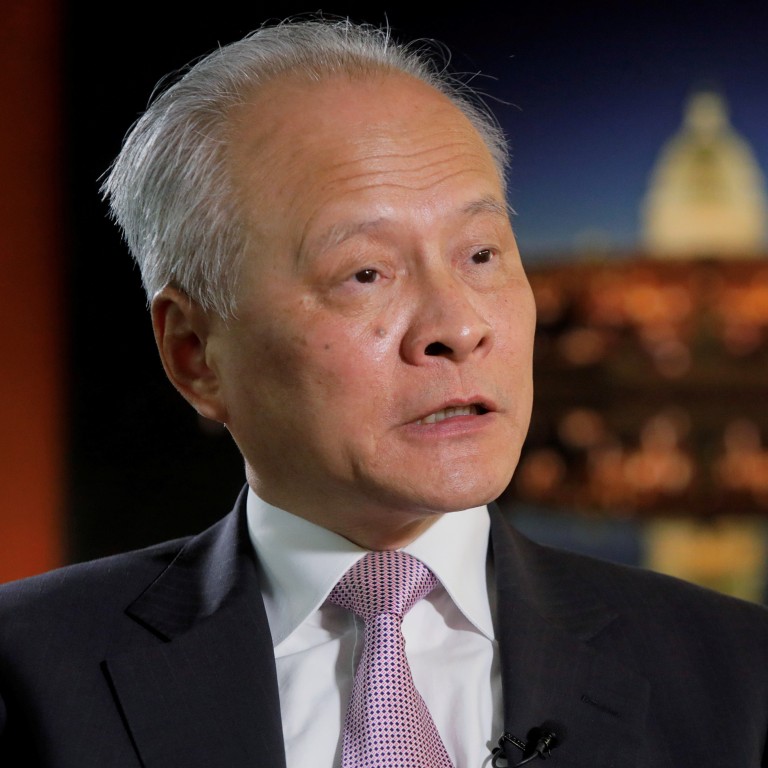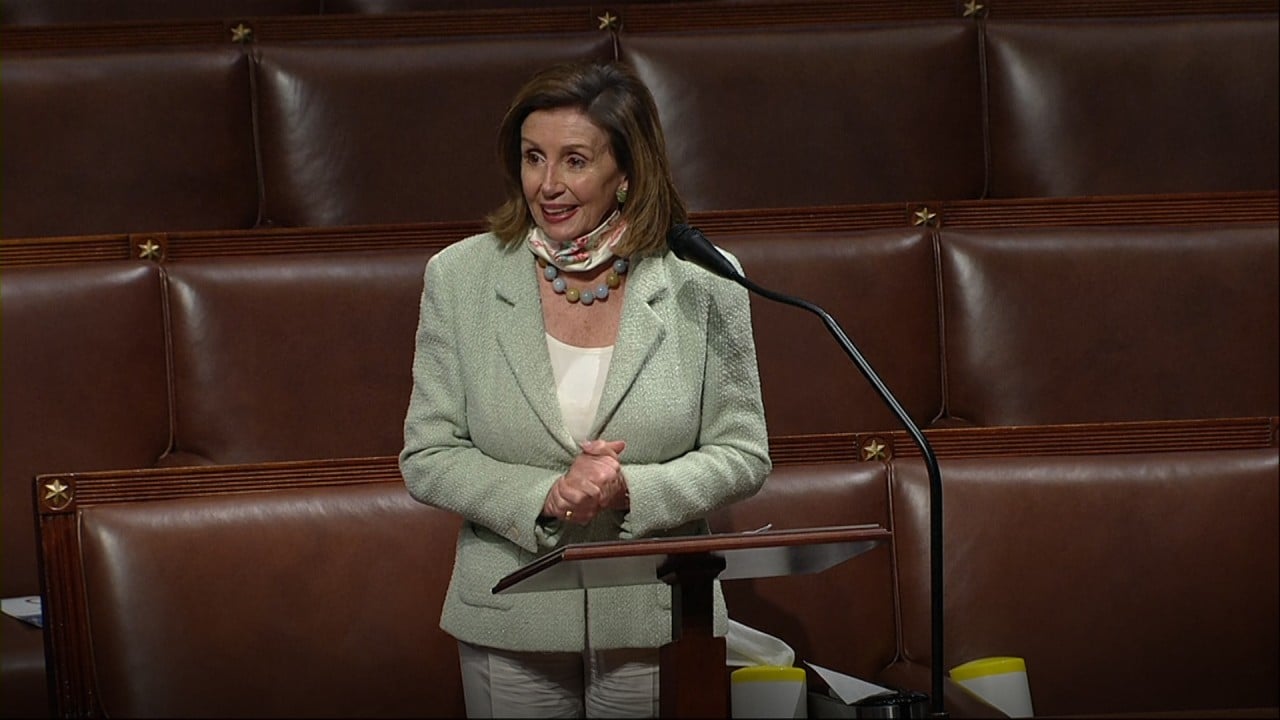
Beijing envoy says Washington must decide if it is ready to accept rise of China
- Ambassador Cui Tiankai tells CNN his country has ‘legitimate right’ to modernise in wide-ranging interview
- Hong Kong national security law, South China Sea claims and US sanctions over Xinjiang also raised
Beijing’s top envoy to the US has urged Washington to decide whether it is ready to accept the rise of China, amid ever-heightening tensions between the strategic rivals.
Cui Tiankai told CNN’s Fareed Zakaria in an interview on Sunday that China had the “legitimate right” to modernise into a “strong, prosperous country”, pushing back against the growing consensus in Washington for a more hardline approach to an increasingly assertive Beijing.
“The fundamental question for the United States is very simple: is the United States ready or willing to live with another country with very different culture, very different political and economic system?” said Cui, who has been the Chinese ambassador to Washington since 2013.
“Whether the United States is ready to live with it in peace, and cooperate on so many and still growing global challenges? I think this is a real choice – this is a fundamental choice people have to make.”
Are China-US relations drifting closer towards war?
US President Donald Trump’s administration has stepped up its rhetoric and actions against Beijing in recent months ahead of his re-election bid in November, citing China’s more aggressive and repressive actions domestically and abroad under President Xi Jinping.

05:50
What you should know about China's new national security law for Hong Kong
Critics have decried the sweeping legislation – which applies to offences by Hong Kong residents and foreign nationals both in and outside the city – for undermining Hong Kong’s autonomy from Beijing under the “one country, two systems” model and its freedoms.
The US has moved to end its different treatment of Hong Kong relative to mainland China, including a special trading status and extradition treaty, due to its concerns over the security law.
“The new law is intended for just that purpose, to maintain and safeguard ‘one country, two systems’, to make Hong Kong more stable, more secure for everybody, for the Hong Kong residents, and as well for foreign investors,” Cui said. “If people have no interests in getting themselves involved in such [criminal] acts, they have nothing to worry about.”

03:21
US House of Representatives sends Uygur Human Rights Policy Act to Trump’s desk for approval
Cui said China had a “very strong position” to stake out its sovereignty in the South China Sea, where it has overlapping claims with the Philippines, Vietnam, Malaysia, Brunei, and Taiwan.
“Without outside interference, the situation in the region was cooling down, was quite stable, but unfortunately countries like the US – particularly the United States – is trying very hard to intervene, to send their military, to strengthen their military presence in the region, the intensity and frequency is so high,” he said, referencing the more frequent “freedom of navigation” exercises carried out by the US.
Asked about the change in Trump’s rhetoric on China, from his earlier praise of Xi to now blaming Beijing for the pandemic, Cui warned against allowing “suspicion, fear, or even hatred to hijack” foreign policy.
“We are always ready and open to work together with the US government, any administration, and especially we still have confidence in the goodwill of the American people,” he said. “We have the kind of goodwill towards the American people, so I think as great powers, big countries, we have the responsibilities not only for themselves but also for the world.”

